On 25th September 2018, people from all over India gathered to protest the deaths of over a 1000 safai karamcharis (sanitation workers) involved in manual scavenging, a practice banned since 2013 but which continues to take place. Sparked by the recent spate of 11 deaths over a week, the Safai Karamchari Andolan, led by Bezwada Wilson, convened the protest. It is aptly called ‘Stop Killing Us’ – the idea behind the name being that these deaths are essentially murders, because they could have been easily avoided had successive governments cared enough to provide these workers with the basic gear required for their jobs.
The protest began with chants of ‘Jai Bhim’ (victory to Bhim), followed by a series of rousing speeches from the likes of Umar Khalid, Usha Ramanathan, Kavita Krishnan, Ashok Bharti, Brinda Karat and Arundhati Roy. These served as strong calls to action and instilled a sense of solidarity by making it clear that although this is an issue faced only by the Dalits of our country, the shame of it should be felt by every Indian because the responsibility lies with each of us.
“Don’t carry a jhaadu for photo-ops when a word doesn’t come out of your mouth about these issues. Don’t build toilets if you can’t make sure the ones who clean them don’t die.” – Kavita Krishnan @kavita_krishnan #StopKillingUs pic.twitter.com/72zq3QEoJ6
— Feminism in India (@FeminismInIndia) September 25, 2018
“I want the government to tell me if it’s more important to spend crores on a bullet train than it is to save the lives of the people keeping our country clean” – Ashok Bharti @DalitOnLine #StopKillingUs pic.twitter.com/ns2wEm7dA4
— Feminism in India (@FeminismInIndia) September 25, 2018
“I don’t know what to even say, because the people who are supposed to hear us aren’t here. They don’t speak about this issue, okay. But I fear the moment they stop listening to us.” – SC advocate Usha Ramanathan. #StopKillingUs pic.twitter.com/UouamdcMKe
— Feminism in India (@FeminismInIndia) September 25, 2018
The speeches were interspersed with stories by the safai karamcharis who had lost their loved ones to this evil of caste-based discrimination. Recounted in front of posters with pictures of the people who had been killed by sewer accidents, all these accounts were harrowing. Yet perhaps the most heartbreaking story was the one which was not narrated. It’s the story of Anil, who was one of the 11 people who had died the previous week. His family – consisting of his wife Nani, son Gaurav and daughters Suman and Lakshmi – was seated on-stage. They didn’t say anything, but Gaurav sat there holding a framed photograph of his mother and father. He had lost his four-month-old younger brother to pneumonia just six days before he lost his father.
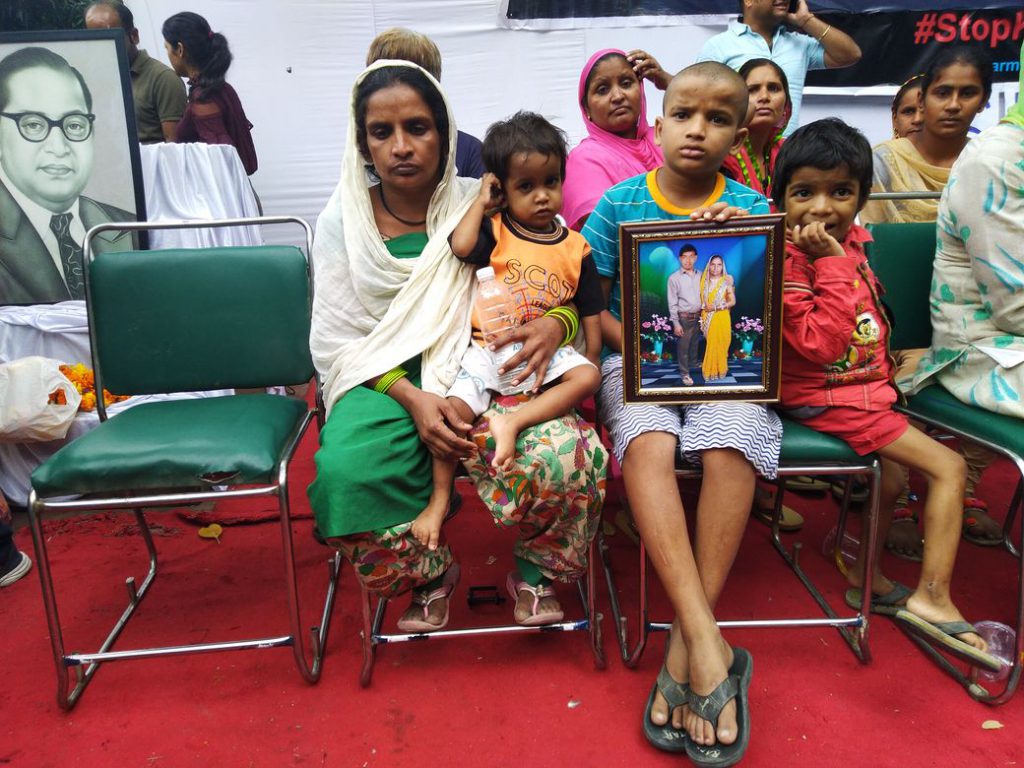
Anil’s family
There was a lilting melody sung during the protest by a board member of the Safai Karamchari Andolan, an excerpt from which is:
“nadiyan pyaar ki bahaenge
nafraton ke diye bhujaenge”
(we will make rivers of love flow
we will put out lamps of hatred).
Another board member recited a heart-rending poem and theatre groups from The University of Delhi danced, sang, played music and acted. There was art being drawn on the road.
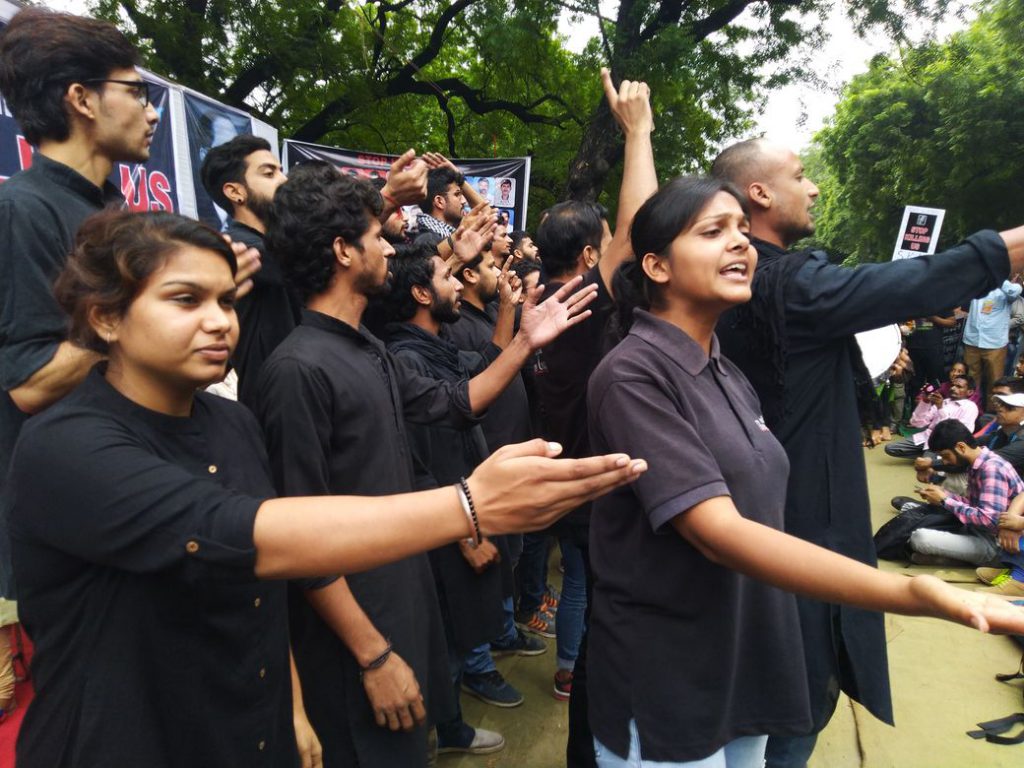
Asmita Theatre Group performing at the #StopKillingUs protest
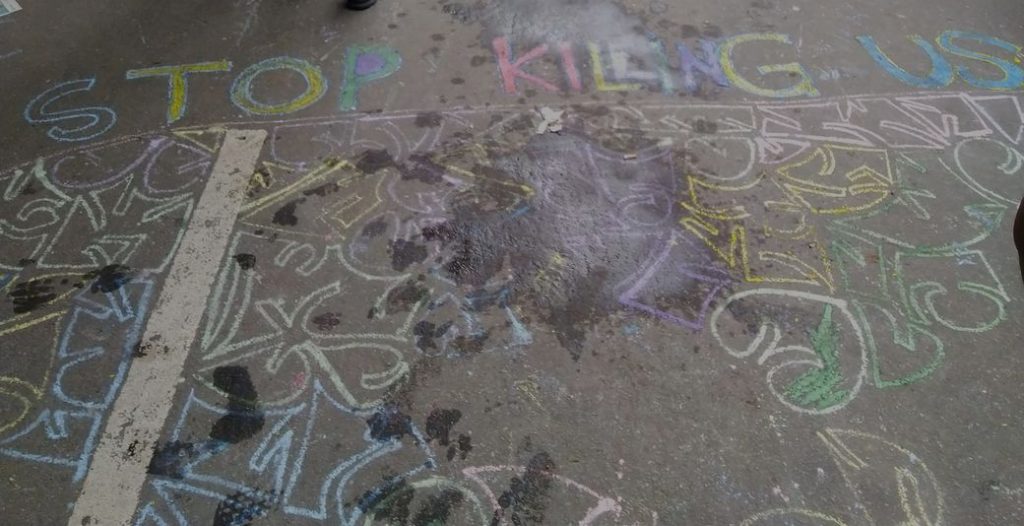
The art on the road
The protest came to an end with the women from the affected families burning models of septic tanks and manholes. The flames rose up to the sky, amidst drumbeats and chants of ‘inquilab zindabad’ (long live the revolution).
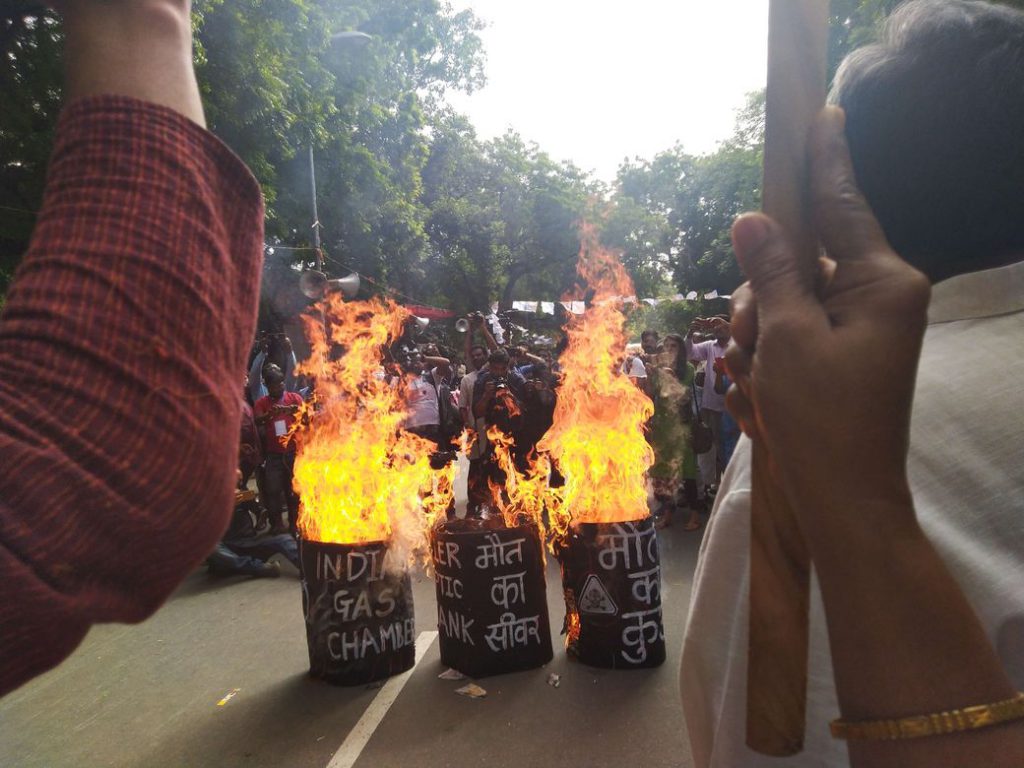
The burning of septic tank models
Also read: Divya Bharathi’s ‘Kakkoos’ and the Casteist Reality of Manual Scavenging
About the author(s)
Hamsadhwani is a law student and anti-caste socialist feminist. Abolish the conditions that produce the prison.
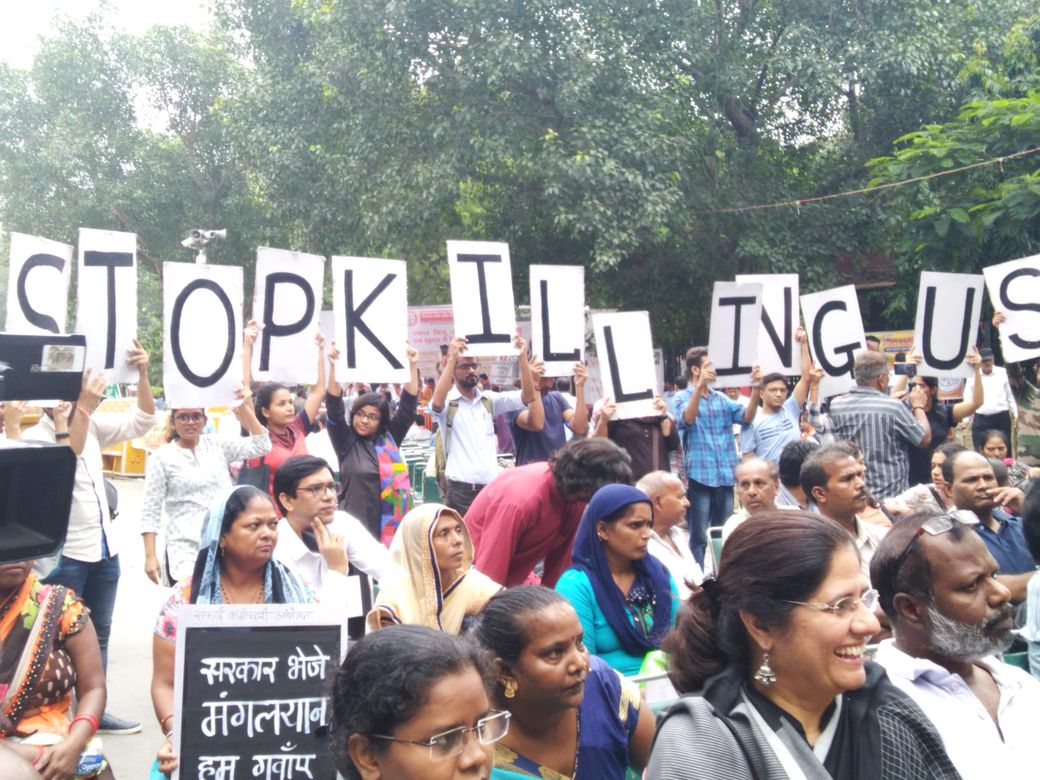


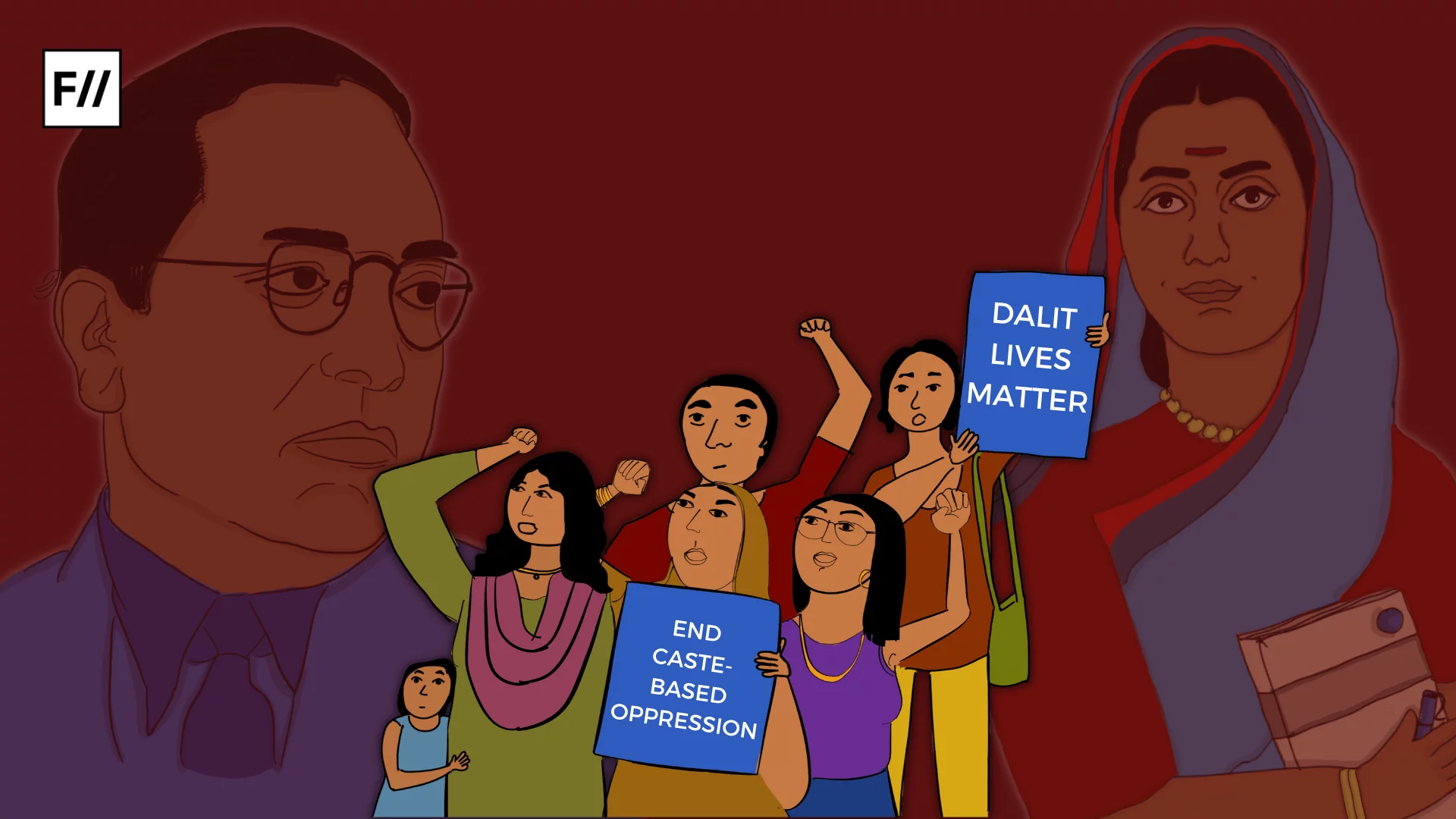

Well written.. way to go ☺
Hi, I am a Photography student of Sri Aurobindo Centre for Arts and Communication, and wanting to work upon Manual Scavenging. Can I get any contact details where I can start my conversation and make further contacts.